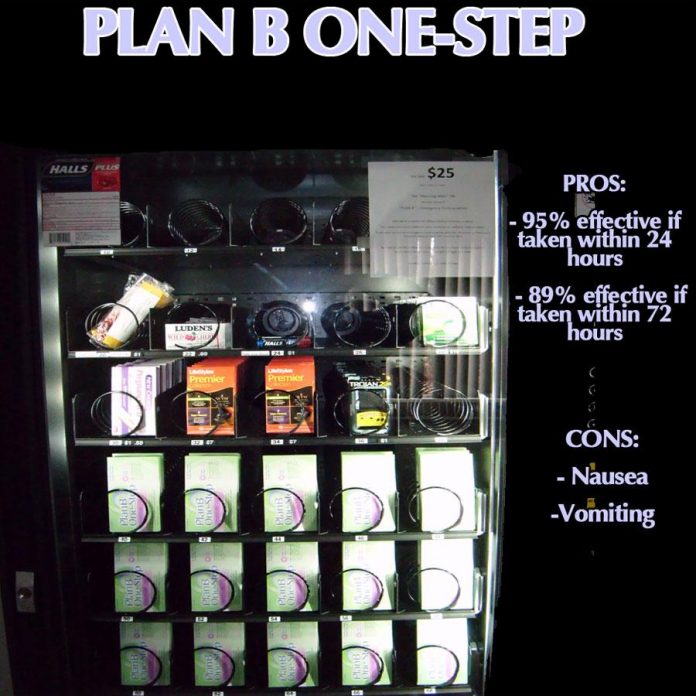A machine that dispenses Plan B One-Step along with other forms of contraception at Shippensburg University of Pa. has faced recent criticism.
The President of Shippensburg University, Bill Ruud, made a statement on February 9 saying that there have been recent questions about the ethics of having a Plan B machine.
Ruud addressed these concerns by saying that a majority of universities in the nation also offer Plan B. He stressed the fact that students are encouraged to speak with the counseling staff of student services about the issue.
Ruud also stated that the machine is not funded by the state or by taxpayers’ dollars.
The FDA (U.S. Food and Drug Administration) as well as members of the campus and community are currently reevaluating the campus’s dispensing practices.
Until a decision is made, Shippensburg will keep the machine.
Executive Director for University Communications and Marketing at Shippensburg University, Dr. Peter Gigliotti said that the machine was installed over two years ago.
The vending machine dispenses Plan B for $25, along with other forms of contraception, cough drops, and other general medications.
The records for the machine state that they have sold an estimated 350 to 400 Plan B pills per year.
While it is illegal to sell Plan B to anybody under the age of 17, Gigliotti states that identification is checked before students are allowed to enter the health center where the machine is located.
“In the two years that we’ve had the machine, I have never heard a single complaint about it,” said Gigliotti.
Slippery Rock University Health Promotion Coordinator, Renee Bateman, stated that SRU has not considered adding such a machine to the health center.
“The Slippery Rock Health Center is open 24 hours when classes are in session,” explained Bateman. “We do have ECP or ‘Plan B’ available to students, as well as other forms of contraception such as condoms and prescriptions to the pill, or the patch.”
If a student is in need of emergency contraception, Bateman recommends meeting with a nurse at the health center right away.
Students at SRU seem to be split down the middle on this issue. Students seem to be more concerned about the business and accessibility sides of the argument, rather than any moral implications.
Lisa Correll, a sophomore accounting major, doesn’t understand why colleges and universities would consider adding one of these vending machines.
“It doesn’t make sense to me business-wise,” Correll said. “Vending machines are for convenience and impulse buys. I’m not going to buy the morning after pill from a vending machine because they’re not your first line of defense regarding birth control choice. That’s kind of their point to begin with, it’s for when your other methods fail.”
While Correll doesn’t believe these machines are beneficial, Lauren Buckel, a junior political science and philosophy major, thinks these machines are a great idea for campuses.
“It’s a good thing because it gives people more access than they would normally have if they had to go to a store and just keep looking for it,” Buckel said. “You know that there’s one place that you can go and find it.”








